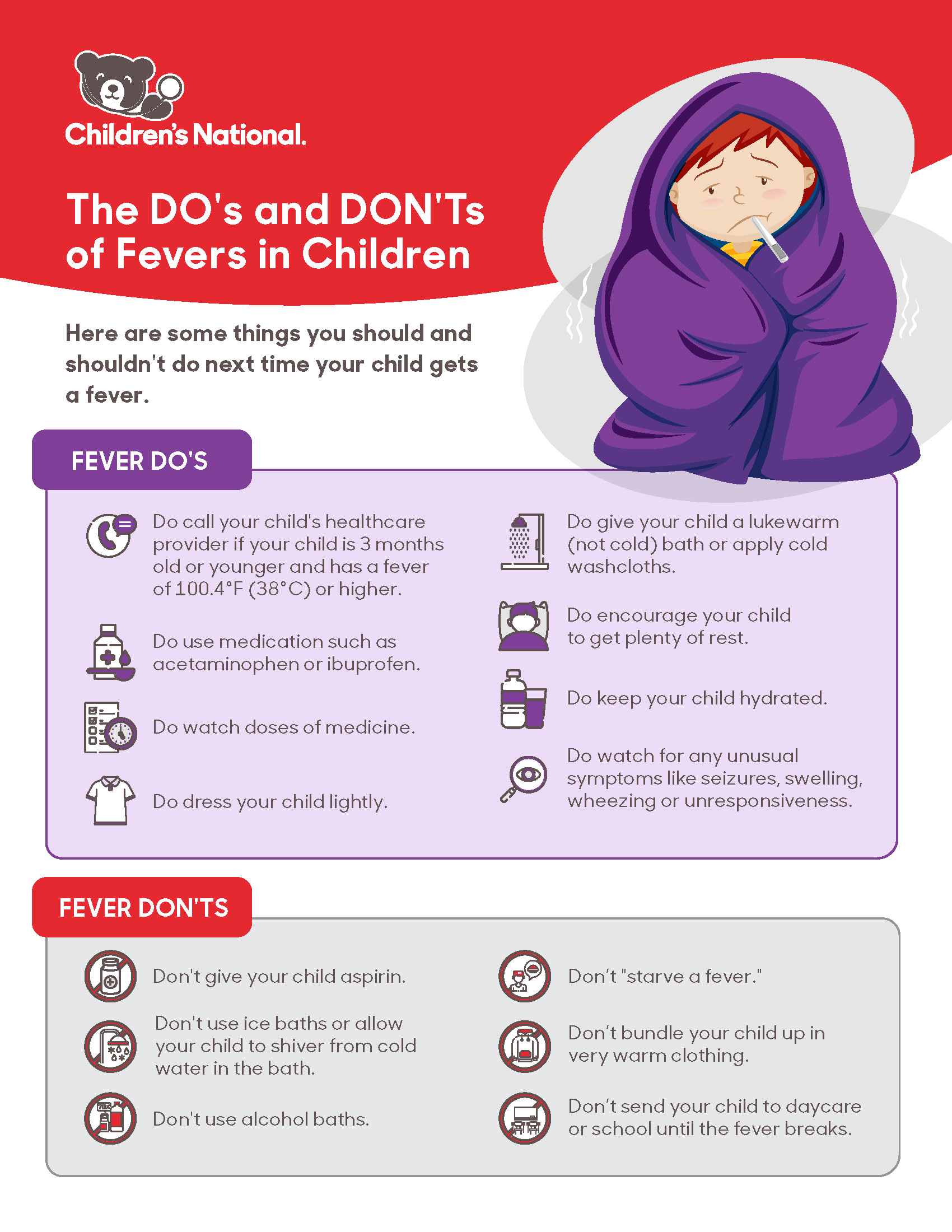
Every child gets a fever from time to time, and usually it’s nothing to worry about. In fact, it’s the body’s way of fighting off infection such as viruses and bacteria, so it’s a sign your child’s immune system is revving up and acting appropriately. But it’s important to know what to do when this happens. Here are some fever dos and don’ts to help your child feel better.
Fever dos
- Do call your child’s healthcare provider if your child is 3 months old or younger and has a fever of 100.4°F (38°C) or higher.
- Do use medication. Treating a fever with common over-the-counter antifever medicine, such as acetaminophen or (if your child is at least 6 months of age) ibuprofen, will help relieve any discomfort they are feeling.
- Do watch doses of medicine. While it’s okay to give your child acetaminophen and ibuprofen, be sure to give the correct doses.
- Do dress your child lightly. Excess clothing will trap body heat and cause the temperature to rise.
- Do give your child a lukewarm (not cold) bath.
- Do apply cool washcloths to your child’s forehead to provide some comfort.
- Do keep your child hydrated. Encourage them to drink plenty of fluids, such as water and Pedialyte; a little juice is ok too.
- Do encourage your child to get plenty of rest. Activity raises the body’s temperature which can cause your child to overheat in the setting of fever.
- Do watch for any unusual symptoms like seizures, swelling, wheezing or unresponsiveness
Fever don’ts
- Don’t give your child aspirin. Aspirin has been linked to a serious, potentially fatal disease, called Reye syndrome.
- Don’t use ice baths or allow your child to shiver from cold water in the bath, as this can cause discomfort and raise the body temperature.
- Don’t use alcohol baths.
- Don’t “starve a fever.” Children with a fever may be less hungry than normal, but when they do want to eat be sure to offer a healthy, well-balanced meal.
- Don’t bundle your child up in very warm clothing — this may cause their temperature to rise further.
- Don’t send your child to daycare or school until the fever breaks, to avoid further spread of infection.

Download our Fever Dos and Don’ts infographic here.


ABOUT THE EXPERT
Sarah Combs, MD, is a pediatric emergency room physician and Director of Outreach in the Division of Emergency Medicine and Trauma Services at Children’s National.

